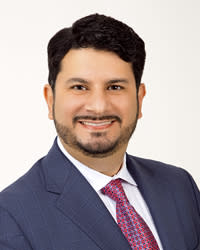Under The Hood Of 2 New ESG ETFs


The proliferation of environmental, social and governance investing (ESG) is taking many forms in ETF wrappers. One of them is equity and fixed income investing through the lens of Sharia law. Naushad Virji, CEO of SP Funds, who’s behind the recently launched SP Funds Dow Jones Global Sukuk ETF (SPSK) and the SP Funds S&P 500 Sharia Industry Exclusions ETF (SPUS), tells us how using Sharia-compliant funds can deleverage a portfolio and improve risk-adjusted returns.
ETF.com: The SP Funds Dow Jones Global Sukuk ETF (SPSK) is essentially a fixed income strategy, but one that invests in sukuks, which are financial certificates. How should we compare a sukuk portfolio to a bond portfolio?
Naushad Virji: The concept is a little bit different. Instead of being focused on fixed income, we’re focused on lease arrangements, which is a relatively newer type of financing alternative that’s becoming bigger. We wanted to get in on that, because there's no other product like this in the market.
Specifically, we’re looking at companies that lease equipment to businesses. Generally, they work on much higher margins. There's potential there for getting better yields than what we see in a low interest rate environment, and, at the same time, have lower interest rate risk.
Take Emirates airlines, for example. When they're growing out their fleet of airplanes, they can't necessarily just go out and buy airplanes. They could borrow money, but they’ve chosen to use the sukuk market, where you have a fund with investors who go out and buy the airplane. They then turn around and lease it to the airlines. That lease income basically comes back to the shareholders.
ETF.com: The price of a bond is basically determined by its credit rating. Does that mean the value of a sukuk is based on the asset behind it—in this case, the leases?
Virji: That’s correct.
ETF.com: If you’re an investor who doesn't follow Sharia law, but you're still interested in this asset as a complement to your fixed income sleeve, where does SPSK fit in?
Virji: It’s a really good alternative to regular fixed income bonds. You’d want to compare it to a bond portfolio. It would complement a bond portfolio, because one of the things that motivated us is that there really aren’t that many products out there that are focusing on hedging against leverage. Our ETFs do that.
That’s important, because when you look back at history, and see a major event like 2008, where the markets came down 39%, what's one way to hedge against that? By trying to avoid debt investments. But how do you do that without compromising returns? With the sukuk market, instead of debts, we’re focusing on leases and lease income.
ETF.com: What about your other ETF, the SP Funds S&P 500 Sharia Industry Exclusions ETF (SPUS)? How does it tackle the issue of hedging leverage?
Virji: With SPUS, we’re taking the S&P 500 as is, and stripping away any companies that have debts that are greater than 30% of their market cap. At the end of the day, we’re left with very-well-capitalized companies, which we believe are stronger and can hold up better against downturns in the market.
ETF.com: Both these ETFs exclude certain industries, like alcohol, gambling and tobacco, according to Sharia law. Should investors look at these funds as another take on ESG investing?
Virji: I believe so. The two big things we’re trying to accomplish are, first of all, the hedging against leverage. The S&P 500 portfolio has basically about 230 stocks left after the debt threshold screening. The other items we stripped away are linked to being socially responsible and Sharia compliant, so we excluded certain industries, and SPUS is an S&P 500 ETF with only about 200 underlying stocks.
ETF.com: The methodology means SPUS has almost twice as much technology weighting, and practically no financials exposure relative to the S&P 500, probably linked to the restriction on interest-based business models. Can you speak to these sector tilts?
Virji: The approach to that is interesting, when it comes to Sharia compliance. We look not just at companies that are in significant debt, but companies that could come into significant debt. We’re also out of all of the banks, so that limits our exposure to financial institutions.
The main financial stocks we’ll have are ratings agencies like Moody’s, but not credit providers. Technology is a very big sector in the S&P 500, so it just gets a little bit bigger when you're following a Sharia-compliant approach.
ETF.com: If you think of these ETFs as ESG, there’s this misconception that ESG or principles investing means sacrificing returns, especially in exclusionary strategies. Do you find yourself having to debunk this myth?
Virji: I'm glad to hear you say that, because in a lot of interviews I've done, I get the question, “How much of a return are you willing to sacrifice to be following these principles?”
Following these kinds of principles doesn’t mean you're giving up your returns. You’re giving up companies that are in a lot of debt, or any stocks that may not be issue-compliant. So returnwise, I really don’t think that there's a sacrifice. And we’ll prove that with time.
ETF.com: Let’s talk about your target audience. Are these funds meant to appeal to anyone, and are you pitching them that way to advisors and investors everywhere, or are you focusing on clients who are Sharia-compliant?
Virji: First, ESG has been very interesting. A lot of people have been following that space lately. And we believe that this fits in very well. One of the things that we did in researching this was, we wanted to look at the mutual fund industry and see who are the buyers of those Sharia-compliant funds? And why?
We found that only about a third of all Sharia-compliant products out there are being bought by the Muslim community for reasons of the investments being Sharia-compliant. The other two-thirds are people who are using Sharia-compliant products as a means of reducing risk in a portfolio because of the fact that we’re in companies with lower debts, effectively hedging against leverage. For individual investors, the downside protection, lower debts and Sharia-compliant ESG, these products are resonating.
Contact Cinthia Murphy at cmurphy@etf.com
Recommended Stories
